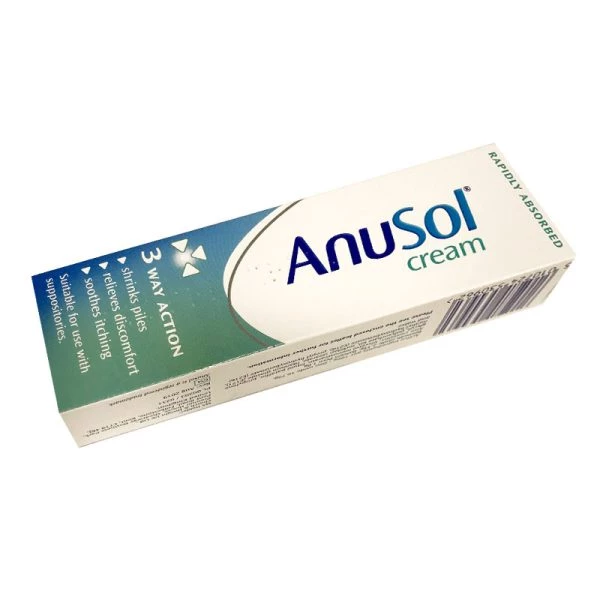Piles (Haemorrhoids)
View our range of piles treatments
Showing all 6 results
-

Anusol Cream
From: £3.99
View product -

Anusol Suppositories
From: £3.99
View product -

Anusol Soothing Relief Ointment (with hydrocortisone) – 15g
£4.99
View product -

Anusol Soothing Relief Suppositories (with hydrocortisone) – Pack of 12
£4.99
View product -

Germoloids Ointment
From: £3.99
View product -

Germoloids Suppositories
From: £4.49
View product
Piles (haemorrhoids)
Piles occur when the blood vessels (veins) in your anal canal become swollen and enlarged. This may occur for a number of reasons, including:
- straining or pushing too hard when passing stools, which may occur if you have constipation or long-lasting diarrhoea
- getting older, as your anal canal becomes weaker as you age, making piles more likely to occur
- lifting heavy objects
- pregnancy
To prevent piles it is important to avoid getting constipated by changing your lifestyle and diet. You should:
- Have a diet rich in fibre
- Drink plenty of water
- Avoid caffeinated drinks such as tea and coffee
- Exercise regularly
There’s a range of medicines that can help to relieve the symptoms of piles. Some treatments include:
- Changing your diet and lifestyle to prevent constipation. This may include increasing water and fibre intake as well as exercising more often.
- Keeping your bottom dry and clean and only wiping it with a damp toilet paper to reduce friction.
- Applying an ice pack wrapped in a towel to the anal area to ease discomfort
- If you are constipated and are passing hard stools, use laxatives such as Fybogel or lactulose, which help soften stools and help them pass easily.
- Painkillers such as paracetamol can be taken for any pain or discomfort associated with pile.
- Creams, ointments and suppositories which ease any pain and itchiness. There are various products available (either over the counter or on prescription) such as Anusol and Germoloids. Creams and ointments are more useful for internal and external piles, which suppositories can be inserted directly into the anus for treatment of internal piles. These treatments are formulated with ingredients to sooth soreness, shrink piles, ease itching and even reduce inflammation.
It can sometimes take a few weeks for self-help measures and medicines to work. If your symptoms don’t improve after this time or if they keeping coming back, you should contact your GP.
Symptoms of piles (haemorrhoids) include:
- bright red blood after passing stools
- itching, discomfort or soreness around the anus
- feeling that your bowels haven’t completely emptied after going to the toilet
- slimy mucus around the anus
- lumps in or around your anus
- pain around your anus
You should book an urgent GP appointment or call 111 if:
- you have piles and your temperature is very high or you feel hot and shivery and generally unwell
- you have pus leaking from your piles
You should go to A&E or call 999 if you have piles and:
- you are in severe pain
- you are bleeding non-stop or there is a lot of blood when passing stools or you see large blood clots
- Piles (haemorrhoids) are enlarged blood vessels that you can get inside and around your bottom (anus). They are usually small, round, discoloured lumps, which you can feel around the anus.
- Piles may be internal or external. Internal piles start inside your anal canal, but may hang down and come out of your anus. External piles are found closer to your anus opening.
- Piles may often get better on their own after a few days, however sometimes treatment may be required. There are various things you can do to treat and prevent piles.










